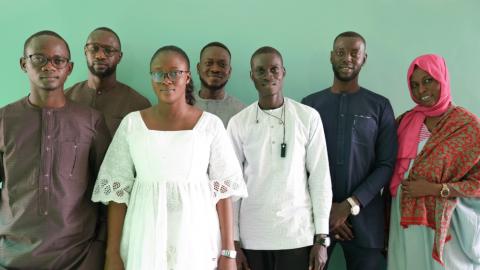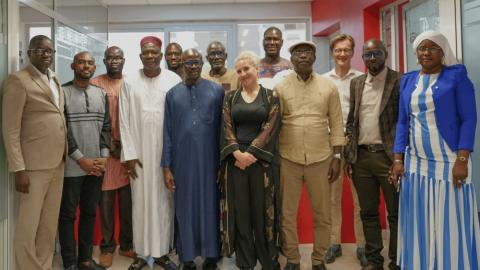
How can we improve access to finance and markets for smallholder farmers in Senegal?

In Africa, smallholder farmers play a fundamental role in food security and the local economy. However, they remain largely excluded from the financial system. Although they account for around 60% of the continent's working population, they are the recipients of only 3% of loans. This imbalance hampers their development, limits their investment capacity and, as a result, affects agricultural productivity.
Why MFIs are reluctant to finance agricultural activities
A number of obstacles stand in the way of microfinance institutions (MFIs): high risks, significant operating costs and administrative constraints. Added to this are challenges such as agricultural price volatility, climatic uncertainties and sometimes unstable public policies. This creates a vicious circle of exclusion for the most vulnerable farmers.
A hybrid approach: the heart of the Farmer 2.0 programme
To address this issue, ADA has launched the Farmer 2.0 (F2.0) programme in Senegal. This innovative initiative combines digital tools and on-site support.

The digital platform improves the efficiency of financing processes, while the team on the ground ensures that financial services become accessible to rural populations, who are often far from urban centres and traditional infrastructure.

Role of ADA
ADA acts as a facilitator by connecting the various actors in the agricultural value chain: MFIs, input suppliers, farmers, cooperatives and insurers. This approach not only facilitates access to credit, but also to inputs, markets and insurance against climate risks.
By adapting financial products to the agricultural cycle, the programme enables partner MFIs to offer solutions that meet the real needs of farmers and cooperatives. Crédit Mutuel du Sénégal, a partner in the programme, explains its added value: "F2.0 aligns financing with the stages of agricultural production and sale, which was not the case before".

Implementation that delivers results
The programme is currently being rolled out in the central region of Senegal, focusing on crops such as millet, groundnuts, cowpeas and maize. It has seven partner MFIs. Since 2020, almost 12000 farmers have received loans worth around €7,5 million. These loans have been used to purchase inputs ahead of the planting season, and also to store the harvest under good conditions so that it can be sold on the market at a higher price.
A win-win for all stakeholders
This programme benefits all stakeholders. Farmers can invest in their crops in good time, agricultural cooperatives can access loans to store and sell produce at the best price, and MFIs have more effective means of assessing and monitoring the use of loans, limiting the risk of non-payment and controlling the cost of agricultural financing.
Testimonials confirm the positive impact
The impact of the programme is already tangible. Salla Ba, President of the Gainte Kaye cooperative in the Kaolack region, explains: "From the very first year, we were able to generate profits thanks to the F2.0 programme. For example, after buying produce from members, we sold it two months later at a higher price. Part of the profit was used to strengthen the operations of the groups that are members of our cooperative”.
Famara Sarr, branch manager of U-IMCEC in Kaolack, explains that the programme has enabled them to expand their area of operations, attract new customers, strengthen their agricultural portfolio and improve the branch's profitability.

A holistic response to the challenges
The F2.0 programme is not limited to access to finance, it also seeks to provide other services to meet the needs of smallholder farmers. For example, it anticipates the risks associated with climate change. An index insurance based on the amount of rainfall has been developed to help producers cope with extreme weather events by triggering compensation payments when rainfall levels are abnormally low or high. At the same time, it mitigates the risk for MFIs of loans not being repaid.
Outlook: a long-term vision to strengthen the financial and agricultural sectors
To ensure the sustainability of the programme and strengthen its impact on the financial and agricultural sectors in Senegal, ADA and the partner MFIs are in the process of establishing an F2.0 company under Senegalese law.